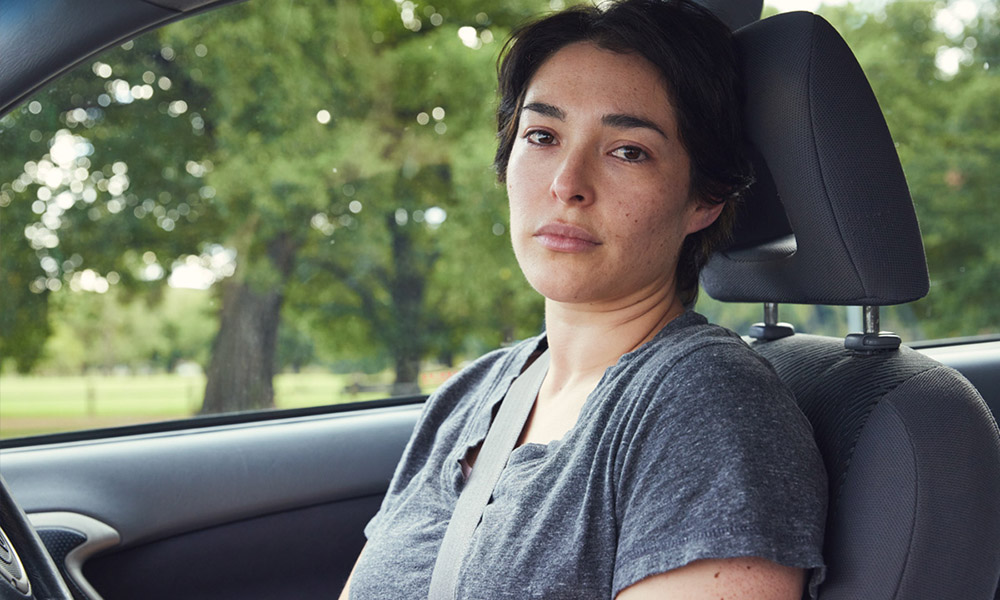Crucial changes needed to prevent crushing outcomes for economically disadvantaged young Australians
- Details
A new Mission Australia report reveals that economically disadvantaged young people face greater social exclusion and more limited opportunities compared to their more advantaged peers.
The Economic Disadvantage: Mission Australia’s Youth Survey 2020 Sub-Report uses data collected during the 2020 pandemic to show substantial differences between the responses of 15-19 year-olds living in families without a parent or guardian in paid employment compared to their more advantaged peers. It underscores the very real and potentially damaging impact economic disadvantage has on young people, particularly in the wake of COVID-19.
The findings indicate many young people from disadvantaged backgrounds are more likely to be excluded from important school and friendship activities because they can’t afford them, go without essentials including meals, face greater mental health concerns, be subjected to unfair treatment because of their financial backgrounds, and endure conflict or violence within their family.
In response to the new data, Mission Australia calls for a whole-of-society approach, with the Federal Government at the helm, to ensure better, more targeted supports and structural changes that will improve the lives of these young people and their families and help end youth deprivation, poverty and disadvantage in Australia.
Mission Australia’s CEO, James Toomey said: “We must recognise that young people are going through vital transitions in many aspects of their lives, which are made all the more difficult by the crushing pressures of economic disadvantage. Economic disadvantage for children and young people can have serious lifetime effects which we should be greatly concerned about as a society – effects that are only likely to be made worse by the challenges of COVID-19.
“A young person’s experience of ‘going without’ can greatly erode their wellbeing for years to come, impacting on their engagement with education, employment, and health. Not only does this have a serious cost for the young person themselves, but it also flows through to impacts for the rest of society.
This gives us pause to consider what we, as a national community, are willing to accept in terms of the burden of poverty placed on too many of our children and young people.
“There is a pressing need for a comprehensive, whole-of-society approach to solving youth issues in Australia, that includes specific actions to support young people in economic disadvantage, with the roadmap and goals set through a government-led response.”
The findings indicate that due to money concerns, economically disadvantaged young people were excluded from a range of school, family and friendship activities. They were more likely to have gone without extracurricular activities at school (25.6% vs 11.6%), going on school excursions or trips (22.6% compared with 8.9%) or going out with friends (33.1% vs 14.8%).
They were also far more likely than their more advantaged peers to report they could not pay bills (e.g. electricity, gas) (31.1% vs 10.1%), could not pay for petrol or car expenses (25.6% vs 6.5%), could not pay rent/mortgage (23.7% vs 6.8%) and have experienced family conflict/violence (29.7% vs 14.3%).
Young people with a parent or guardian not in paid work indicated much higher levels of personal concern about financial security, family conflict and domestic/family violence than their peers (26.8%, 25.3% and 15.3%, compared with 13.5%, 15.1% and 7.0%). They also reported higher levels of personal concern about personal safety, bullying/emotional abuse and suicide.
These young people were less likely to report that they would seek support from their friend/s, parent/s or guardian/s, or a relative/family friend than their peers. Just over one third of economically disadvantaged young people reported that their family’s ability to get along was either fair or poor (34.6% compared with 20.5%).
Economically disadvantaged young people face greater psychological distress than those with parents or guardians in paid work (38.1% vs 25.6%), more than double the proportion feel sad/very sad about their lives (20.8% vs 9.9%), and a greater proportion experience unfair treatment than their advantaged peers (36.0% vs 26.3%), particularly due to their financial background (21.5% vs 7.7%).
While economically disadvantaged young people were more likely to indicate a lower level of engagement with education and employment in their responses to Youth Survey 2020, they also demonstrated strong aspirations for post-school study and employment and high levels of optimism that they would meet their goals.
In response to the findings, Mr Toomey said Mission Australia has put forward a number of solutions to improve the lives of economically disadvantaged young people and their families.
The strong aspirations and optimism of these young people should be celebrated and built upon to encourage strong engagement in education and employment for young people from economically disadvantaged backgrounds.
“It’s no surprise that young people are more likely to be adversely affected by unemployment stemming from COVID-19 lockdowns and restrictions. We believe the Federal Government can play a strong leadership role in developing a national youth employment strategy to better coordinate efforts to help young people transition to work at this challenging time.
“Increasing household income is imperative to ensuring that young people and their families can afford the essentials of life. For work-ready parents and those who are supporting families, access to high quality, secure employment is vital. We need to make sure that people have access to decent, stable work options, that minimum wages are set at an adequate level and that people are offered appropriate assistance to obtain and maintain employment.
We must also ensure working-age income support payments are set at a level that enables recipients and their families to pay for essentials during periods of unemployment.
“There remains a clear gap in the availability of evidence-based education support programs and alternative education pathways available to the most disadvantaged young people. With access to these programs, young people can achieve strong educational and work outcomes.
“Sufficient early intervention programs are sorely needed to support young people and their families through periods of tension and conflict, such as the Reconnect program which promotes positive relationships within families and should be expanded.
“The safety of children and young people subjected to domestic violence is paramount, and these findings further point to the urgent need for more therapeutic interventions for young victim-survivors that prevent or address negative outcomes arising due to domestic and family violence.
“While there has been welcome investment in mental health initiatives in 2020, the Government must ensure young people can receive free mental health and pastoral care through their school or other community resource, and ensure other resources are available for those not at school or who need more intensive support.
To combat unfair treatment faced by young people due to their financial background, the Government must signal that bullying is not okay by properly implementing evidence-based programs that address bullying, harassment and discrimination in every school across Australia.
“Corporate sector and philanthropic organisations also have a major role to play in helping economically disadvantaged young people to thrive. Promoting employer contacts for young people at school, developing recruitment pathways and implementing supports such as peer networks, mentoring and paid cadetships will go a long way in helping young people from disadvantaged backgrounds to secure and maintain employment,” said Mr Toomey.
A total of 24,436 young people who took part in the Youth Survey 2020 responded to the question regarding the employment status of their parent/s or guardian/s. The vast majority of these (95.4%) had at least one parent or guardian in either full-time or part-time work. A total of 1,125 (4.6%) young people who took part in the Youth Survey 2020 reported that neither parent or guardian was currently in paid employment.
According to the Australian Bureau of Statistics, there were 346,000 ‘jobless families’ with dependants in Australia in June 2020, which accounts for 10.5% of all Australian families with dependents.
Read the report
Economic Disadvantage: Mission Australia’s Youth Survey 2020 Sub-Report
Infographic: Economic Disadvantage: Mission Australia’s Youth Survey 2020 Sub-Report
Infographic Narrative: Economic Disadvantage: Mission Australia’s Youth Survey 2020 Sub-Report
Related media releases
Read about what we’ve been working on, our stance on important social issues and how you make a difference to vulnerable Australians' lives.

Mission Australia says more housing & homelessness investment needed in NSW Budget

Ground-breaking ceremony launches Toowoomba housing project

